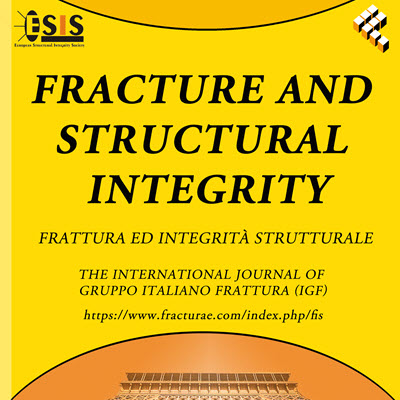Fracture and Structural Integrity: The Podcast
Stay at the cutting edge of fracture mechanics and structural integrity research with the official podcast of the Fracture and Structural Integrity journal. Join us for insightful interviews with top researchers, in-depth discussions of groundbreaking papers, and explorations of emerging trends in the field.
RSS Spotify YouTube Amazon Music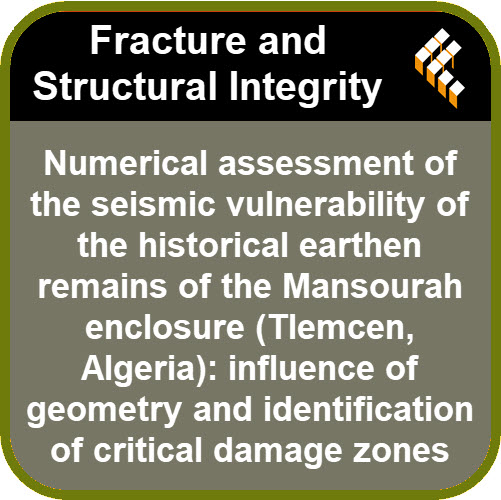
Numerical assessment of the seismic vulnerability of the historical earthen remains ...
2026-02-15
https://www.fracturae.com/index.php/fis/article/view/5747
More DownloadFiletype: MP3 - Size: 9 MB - Duration: 4:47m (256 kbps 44100 Hz)
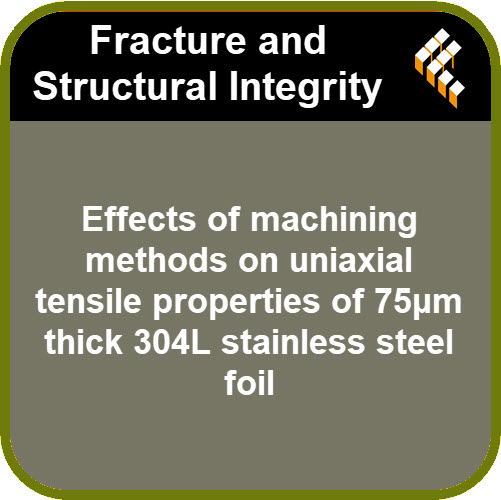
Effects of machining methods on uniaxial tensile properties of 75μm thick 304L stainless steel foil
2026-02-13
https://www.fracturae.com/index.php/fis/article/view/5726
More DownloadFiletype: MP3 - Size: 9 MB - Duration: 4:54m (256 kbps 44100 Hz)
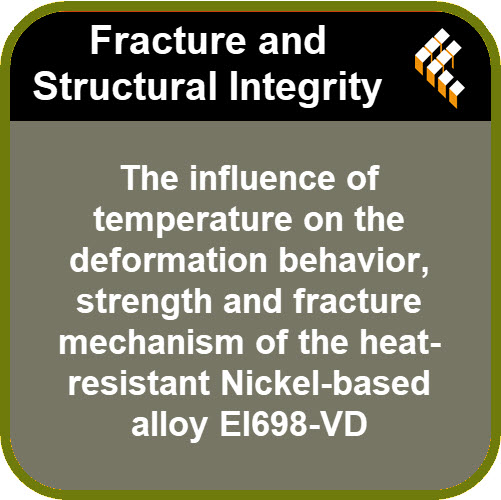
The influence of temperature on the deformation behavior, strength and fracture mechanism of the heat-resistant Nickel-based alloy EI698-VD
2026-02-05
https://www.fracturae.com/index.php/fis/article/view/5756
More DownloadFiletype: MP3 - Size: 8 MB - Duration: 4:27m (256 kbps 44100 Hz)
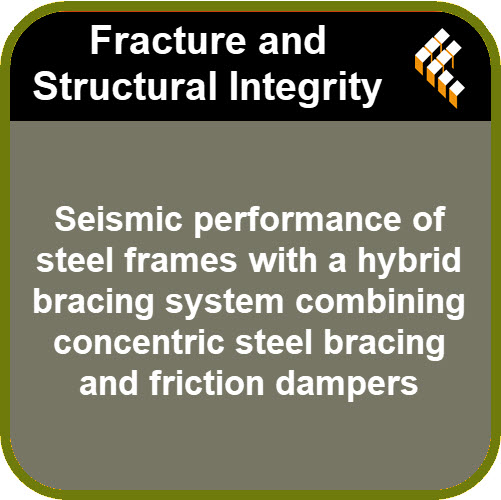
Seismic performance of steel frames with a hybrid bracing system combining concentric steel bracing and friction dampers
2026-01-31
https://www.fracturae.com/index.php/fis/article/view/5764
More DownloadFiletype: MP3 - Size: 9 MB - Duration: 4:43m (256 kbps 44100 Hz)
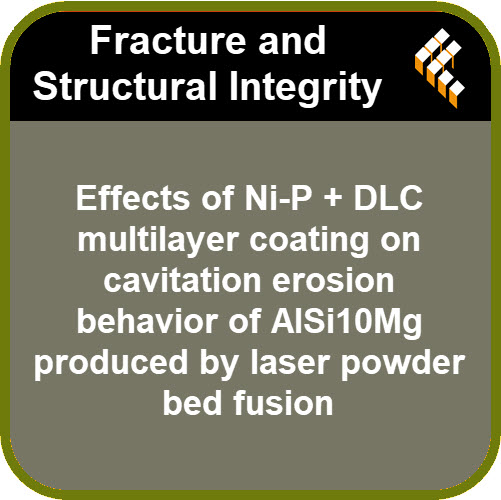
Effects of Ni-P + DLC multilayer coating on cavitation erosion behavior of AlSi10Mg produced by laser powder bed fusion
2026-01-23
https://www.fracturae.com/index.php/fis/article/view/5727
More DownloadFiletype: MP3 - Size: 10 MB - Duration: 5:21m (256 kbps 44100 Hz)
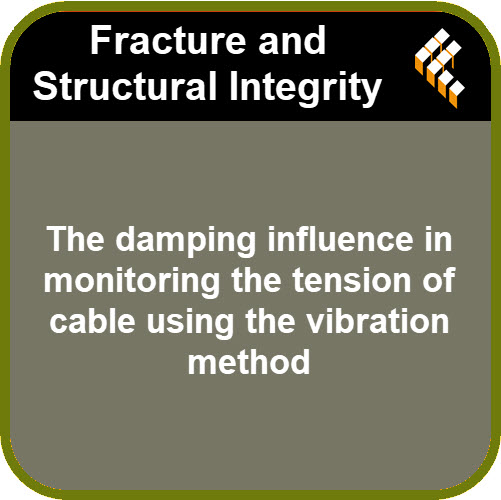
The damping influence in monitoring the tension of cable using the vibration method
2026-01-22
https://www.fracturae.com/index.php/fis/article/view/5698
More DownloadFiletype: MP3 - Size: 8 MB - Duration: 4:29m (256 kbps 44100 Hz)
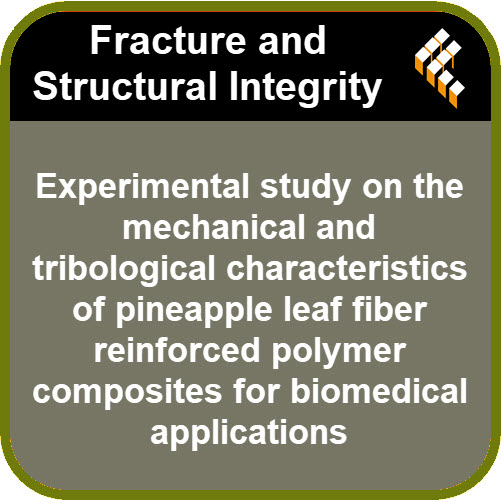
Experimental study on the mechanical and tribological characteristics of pineapple leaf fiber reinforced polymer composites for biomedical applications
2026-01-17
https://www.fracturae.com/index.php/fis/article/view/5715
More DownloadFiletype: MP3 - Size: 8 MB - Duration: 4:21m (256 kbps 44100 Hz)
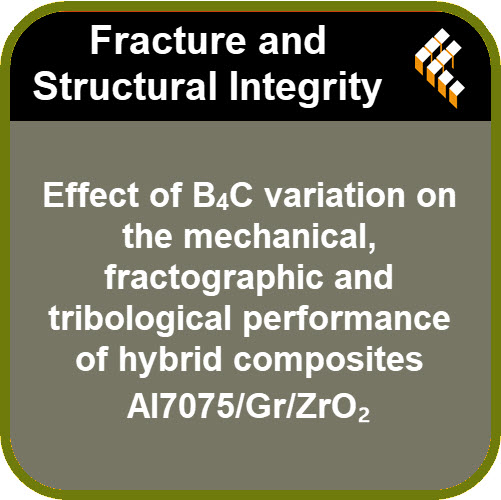
Effect of B4C variation on the mechanical, fractographic and tribological performance of hybrid composites Al7075/Gr/ZrO₂
2026-01-10
https://www.fracturae.com/index.php/fis/article/view/5741
More DownloadFiletype: MP3 - Size: 1 MB - Duration: 5:06m (320 kbps 44100 Hz)
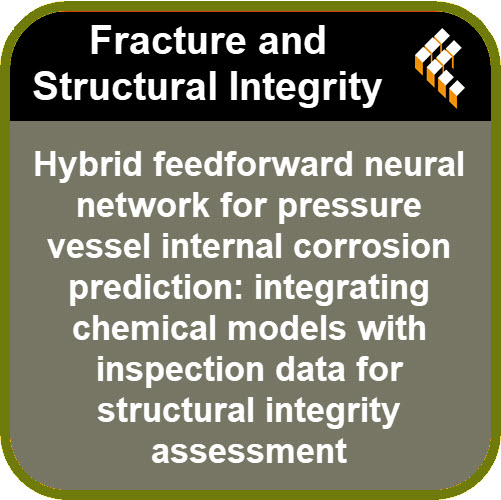
Hybrid feedforward neural network for pressure vessel internal corrosion prediction: integrating chemical models with inspection data for structural integrity assessment
2026-01-06
https://www.fracturae.com/index.php/fis/article/view/5759
More DownloadFiletype: MP3 - Size: 1 MB - Duration: 5:09m (320 kbps 44100 Hz)
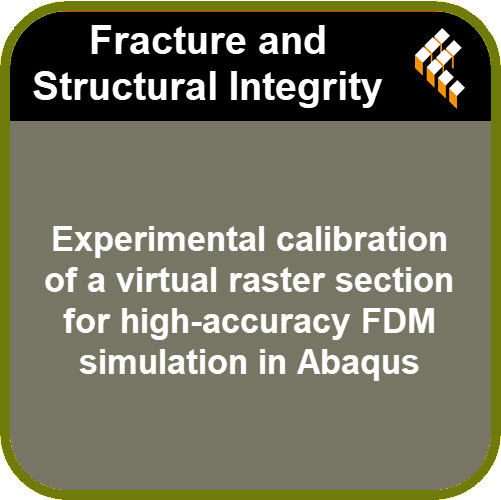
Experimental calibration of a virtual raster section for high-accuracy FDM simulation in Abaqus
2026-01-02
https://www.fracturae.com/index.php/fis/article/view/5665
More DownloadFiletype: MP3 - Size: 1 MB - Duration: 5:17m (320 kbps 44100 Hz)
Powered by Podcast Generator, an open source podcast publishing solution | Theme based on Bootstrap
